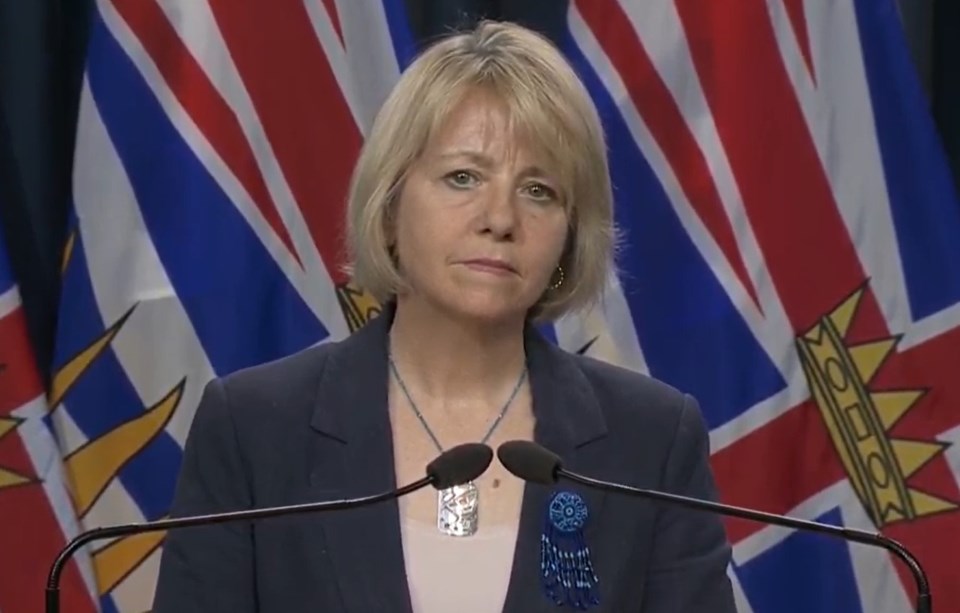Despite B.C. this week announcing it is opening up non-essential travel within the province, the area’s First Nations communities – and many others non-indigenous ones – may remain closed to visitors.
That’s why, said B.C. health officer Bonnie Henry, residents who are planning their travels in the coming weeks need to take extra precaution in making sure not to infringe on the rights of these communities who choose to protect themselves from the COVID-19 threat despite the province-wide travel ban being lifted.
“The message to people is, know where you are going,” Henry said in her briefing this morning. “And this is for all communities across B.C., because we know that not just First Nations communities, but other communities as well, may be more or less prepared to welcome visitors this summer.
“So check ahead if you are going, especially if it’s a small community. Many of them are actually quite anxious and looking forward to welcoming visitors, so we have to take it upon ourselves to make sure we use our travel manners that we’ve all learned. The things we are doing at home, we need to take with us when we are travelling.”
There has been a number of First Nations communities who have expressed concerns that their voices weren’t taken into account for the decision to reopen intra-provincial travel, and that’s a concern acknowledged by Henry and First Nations Health Authority acting chief medical officer Shannon McDonald.
Both said efforts are underway to create signage and other measures to prevent visitors from accidentally stumbling into communities that are not open to the outside public, but some cases around provincial highways running through First Nations land will require more negotiations and discussions – which is ongoing, Henry said.
McDonald added that she shares the concerns of First Nations communities – which have done very well in heeding public health advice and flattening COVID numbers so far – that new visitors may trigger new COVID cases. But she noted that the phase-three opening decision made by the provincial government was made very carefully.
“Am I concerned? Absolutely, and Dr. Henry has said previously we know there will be cases,” McDonald said. “We are hoping, of course, that those cases are not among First Nations people, and that’s why we have our recommendations about physical distancing, hand-washing, not gathering in groups and making sure surfaces are clean... Those pieces will be in place to protect those communities.”
But, for First Nations groups that are simply not comfortable with what’s in place to ensure their communities’ health safety, McDonald also said they are well within their rights to close their doors.
“Some communities will not welcome guests, and they have self-determination,” she said. “... They can make these choices, and I’m not going to disagree with them.”



